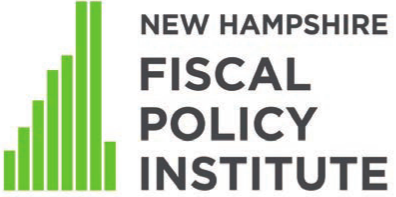
Matthew Gardner, managing partner of Sustainserv, a Boston-based consulting firm, addresses the general session of the annual conference of New Hampshire Businesses for Social Responsibility on May 22. Gardner led a breakout session on corporate sustainability. (Photo by Doug Rathburn Photography)
While a presidential administration aims to scrub climate science and environmental concerns from U.S. government agencies, businesses that have embraced sustainability answer to a higher calling: the rest of the world.
The workshop led by Boston consultant Matthew Gardner at this year’s New Hampshire Businesses for Social Responsibility conference was what you might expect to find at such a gathering.
The managing partner of Sustainserv led a how-to session for businesses and practitioners that dug down into details, was peppered with obscure acronyms and addressed such issues as whether it’s a good idea to produce a 300-page corporate sustainability report.
What was not up for debate was whether sustainability has a future. Global commerce demands it.
While fewer regulations from Washington might lead some to cheer, Walmart has yet to relax requirements on vendors for ecological packaging and other practices they must adopt if they want to see their products on the shelves of the world’s largest retailer.
Understanding business risks and opportunities includes addressing sustainability, Gardner told a couple of dozen people gathered in a breakout room at the Grappone Conference Center in Concord during a daylong conference May 22.
“What I’m seeing in our business is that small, medium and large companies are all confronted with this,” Gardner said. “As global brands, they’re expected to be doing this, and that pressure can come from investors. It can come from customers, it can come from regulators and in some cases, at varying amounts, from the communities where they operate.”
Mike Glinski, regulatory affairs manager at Twin Rivers Technologies, knows firsthand about how quickly a company’s priorities can change when customers demand it. The Quincy, Mass.-based chemical company refines vegetable oil used to produce cleaning products like Tide detergent and Ivory soap.
“Our biggest customers are Procter & Gamble and Unilever, who both have big stakes in sustainability. And from a material and materiality standpoint, they drive us into decision-making,” Glinski said.
Twin Rivers started working with Sustainserv a decade ago to establish its first sustainability reporting protocols after Proctor & Gamble began incorporating sustainability practices at the request of Walmart.
“To be their customer we had to do the same, so we started with doing what we did, whether it was our water use or our electric use, our fuel use, our waste disposal,” Glinski said. “We became much more transparent at that point and started putting that out to the public and out to our customers. Since then, the demands on us, on sustainability, have just grown.”
Those demands can trip up small companies, too. Gardner remembers a baking company approaching him at a conference 10 years ago. The 200-person shop in central Massachusetts had struck gold with its brownie bites product, which had been picked up by Walmart. Now they had to start worrying about their carbon footprint and sustainable packaging.
“Turns out that 45% of revenue at that point in time came from Walmart, and Walmart was coming to all of their suppliers top to bottom. It didn’t matter how big you were,” Gardner said.
A company with $15 million to $20 million in revenue suddenly found itself needing expertise about life cycle analysis and emission factors for greenhouse gas emissions.
“If a company represents 45% of your revenue, chances are you’re going to listen to what they’re asking you to do,” Gardner said.
The stakes for big corporations are exponentially higher.
“Large global corporations typically have relatively sophisticated perspectives when it comes to understanding the risk and opportunity landscape that they have out there,” Gardner said during an interview after the session. “They recognize that climate change might represent a material risk to their business. They know that’s their job as a global publicly traded company.”
That includes the sustainability of their workforce, such as “a human rights issue in the supply chain or if their employee health and safety numbers aren’t what they need to be.”
Gardner notes even China has introduced sustainability requirements and that such measures are in place in Europe and Australia. That means there might not be much savings to be had if regulations are temporarily relaxed in one country or another.
“Global companies tend to take a lowest common denominator approach,” Gardner said. “Like, ‘If we have to do this in Europe and we have to do this in Australia, we’re just going to do it globally.’”



